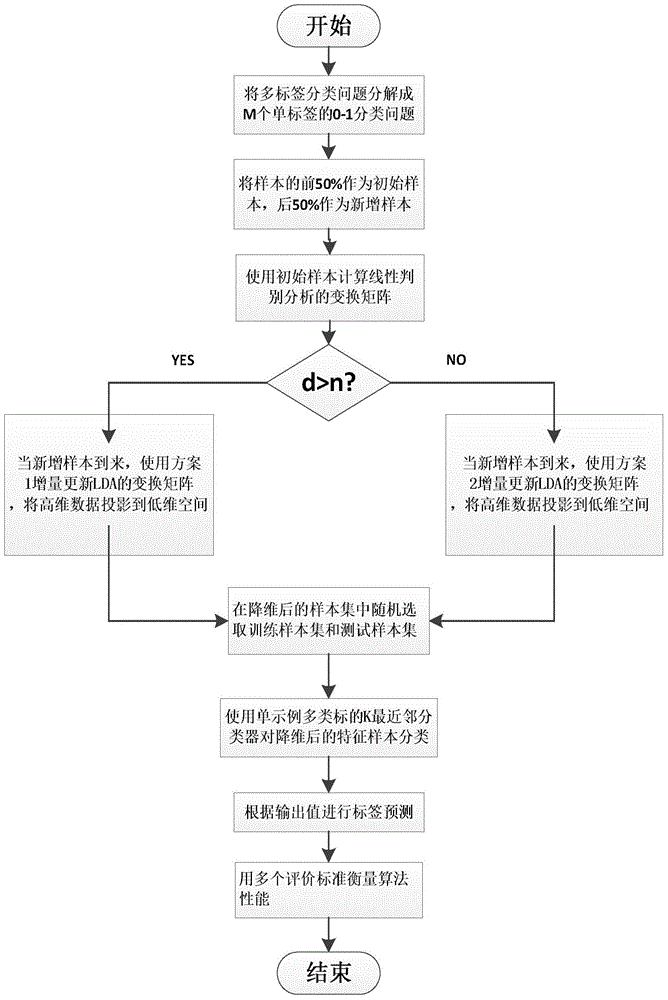Multi-labeled scene classification method based on incremental linear discriminant analysis
A linear discriminant analysis and scene classification technology, applied in the field of image processing, can solve problems such as performance deterioration, unstable classification results, difficulty in determining the trade-off level between efficiency and performance, and achieve the effect of improving classification accuracy and shortening classification time
- Summary
- Abstract
- Description
- Claims
- Application Information
AI Technical Summary
Problems solved by technology
Method used
Image
Examples
Embodiment Construction
[0024] The specific implementation and effects of the present invention will be further described in detail below with reference to the accompanying drawings.
[0025] refer to figure 1 , the specific implementation steps of the present invention are as follows:
[0026] Step 1, extract the features of each sample in the image library to obtain the feature set in Represents the feature of the i-th sample, i=1,...,N, N represents the number of samples in the feature set.
[0027] Step 2: Denote the feature label matrix of samples in the above-mentioned gallery as Y, when the i-th sample belongs to the j-th category, then the element y(i, j)=1 in the feature label matrix Y, otherwise, y (i, j)=-1, and it is stipulated that any sample in the above feature set belongs to at least one category, where j=1,...,M, M represents the number of categories.
[0028] Step 3, use the feature set described in step 1 and the feature label matrix described in step 2 to form a sample set ...
PUM
 Login to View More
Login to View More Abstract
Description
Claims
Application Information
 Login to View More
Login to View More - R&D
- Intellectual Property
- Life Sciences
- Materials
- Tech Scout
- Unparalleled Data Quality
- Higher Quality Content
- 60% Fewer Hallucinations
Browse by: Latest US Patents, China's latest patents, Technical Efficacy Thesaurus, Application Domain, Technology Topic, Popular Technical Reports.
© 2025 PatSnap. All rights reserved.Legal|Privacy policy|Modern Slavery Act Transparency Statement|Sitemap|About US| Contact US: help@patsnap.com



